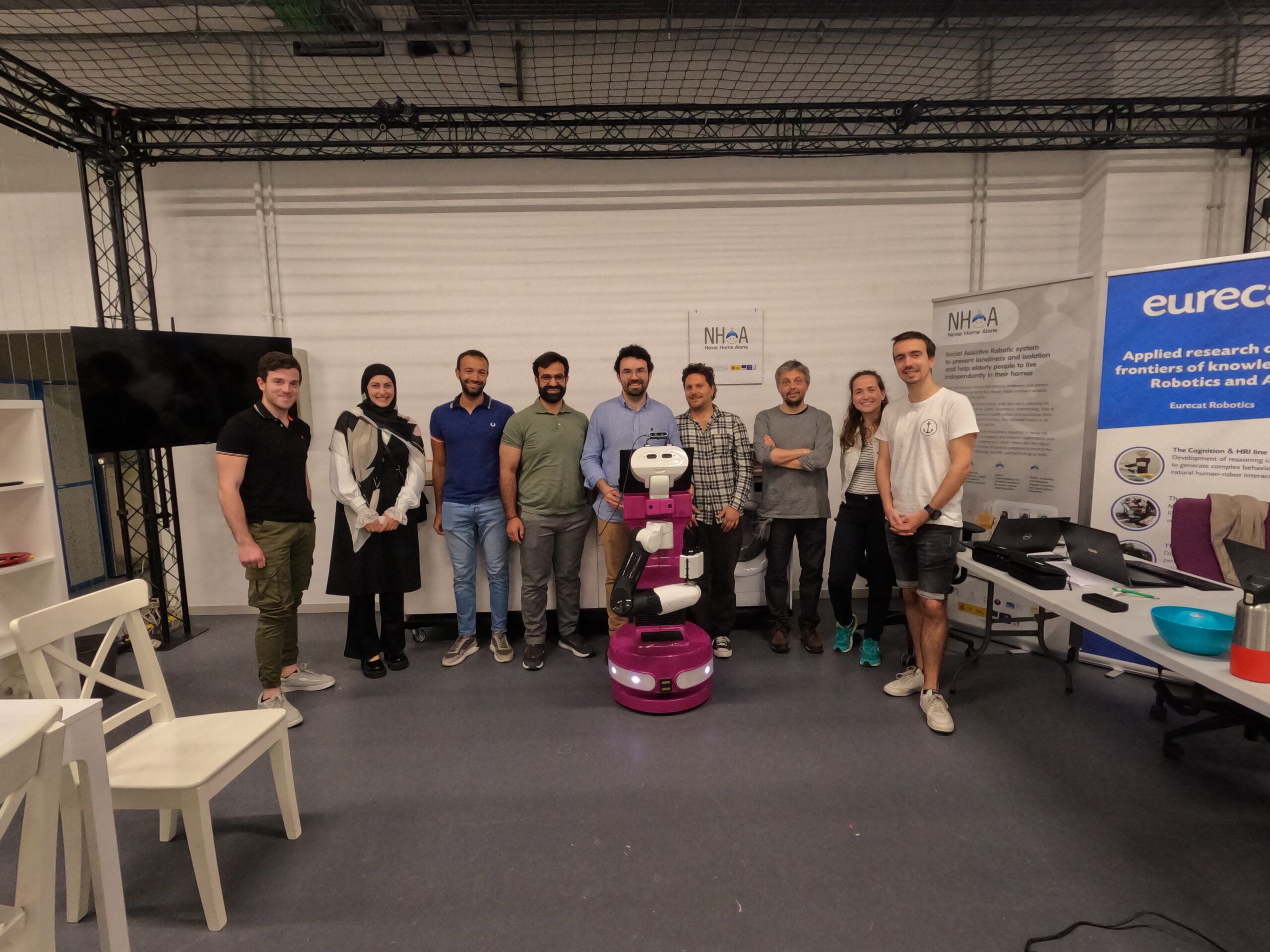Blog
25.10.2024

Although robots have been used to perform complex tasks in many different domains, they still struggle to physically manipulate household objects as glasses, cutlery or food items. This phenomenon is explained through Moravec’s paradox: basic and intuitive skills acquired from evolution and life-long learning by humans are difficult to specify and therefore be performed by robots. For robotic manipulation in daily-life contexts, this implies the challenge of defining all the underlying physics for the huge variety of objects that can be encountered, all conditioned to the grasping tool that the robot has.
The IntelliMan project tackles this problem by introducing AI-based methods able to generalize manipulation over different contexts, using human-like grasping tools. To assess their suitability, a specific Use Case within the project is devoted to use a service mobile robot to perform all the required manipulations to set the table in a kitchen scenario, replicated at Eurecat’s facilities. Recently, an intermediate validation has been performed by gathering all the partners involved in all the modules required for this Use Case, from task reasoning to object identification and grasping. From this collaboration, an initial pipeline has been created to make a robot autonomously perform the task of moving objects between different locations, adapting manipulation to the scene and gripper tool, as it is shown in the video below.
